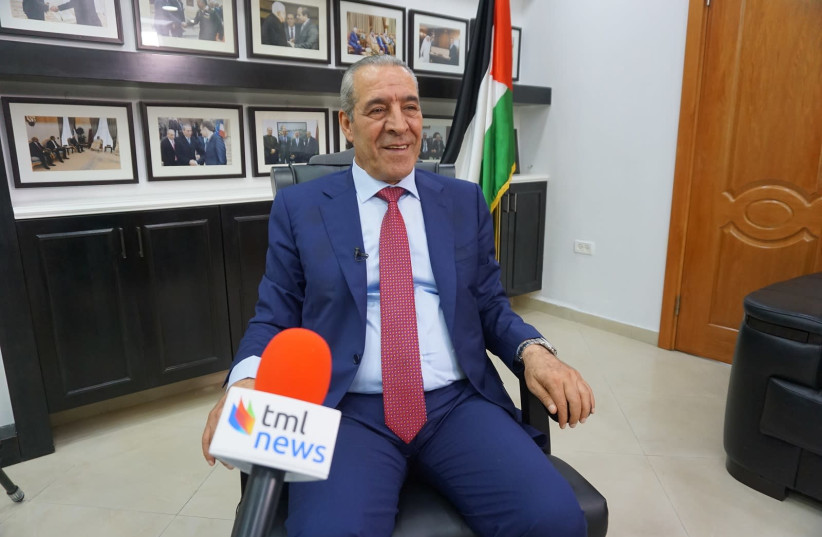The Palestinian Central Council (PCC), the second-highest decision-making body of the PLO, is scheduled to convene in Ramallah on Sunday amid unprecedented criticism and calls for boycotting the session.
Three PLO factions, including the Popular Front for the Liberation of Palestine, announced their intention to boycott the meeting, warning that it would deepen divisions among the Palestinians and reinforce the Ramallah-based leadership’s “hegemony” over major decision-making bodies.
The PFLP called on the Palestinian leadership to call off the gathering and to commit to reforming the PLO and ending the division between the West Bank and Gaza Strip.
Palestinian political analysts said over the weekend that the main goal of the PCC meeting is to fill vacancies in the PLO and its legislative body, the Palestinian National Council (PNC), with officials closely associated with Palestinian Authority President Mahmoud Abbas.
The PCC, the analysts said, is expected to approve the appointment of Hussein al-Sheikh, head of the General Authority of Civil Affairs, as member and secretary-general of the PLO Executive Committee, a job held by the late Saeb Erekat until his death in late 2020.

The Central Council is also expected to approve the appointment of a new member of the PLO Executive Committee to replace Hanan Ashrawi, who resigned in 2020 after accusing the Palestinian leadership of marginalizing and excluding the PLO from decision-making.
It was not clear on Saturday who would replace Ashrawi, who announced on Saturday that she has decided to boycott the meeting.
In a letter to the PCC members, Ashrawi warned that the meeting would “reinforce the division and entrench the state of stalemate and the abandonment of partnership and democratic change through elections.”
THE 142 PCC members will be asked to approve the appointment of senior Fatah official Rouhi Fattouh as PNC speaker. He will replace Salim Zanoun, 89, who retired after 30 years in the job.
Additionally, the council members will be asked to endorse the appointment of a chairman for the Palestinian National Fund, the PLO’s unofficial finance ministry responsible for managing financial aid coming from Arab countries and a “liberation tax” levied on Palestinians working in Arab countries. The PNF is currently headed by Ramzi Khoury.
Sheikh, Fattouh and Khoury are closely associated with Abbas, who also serves as chairman of the PLO and the ruling Fatah faction.
Last month, the Fatah Central Committee “unanimously” nominated Sheikh and Fattouh as its candidates to fill the vacant spots in the PLO and PNC. The decision drew sharp criticism from a number of disgruntled Fatah and PLO officials, who accused Abbas of “monopolizing” Palestinian institutions.
The approval of the appointments of the three officials will be considered a victory for Abbas, enabling him to further tighten his grip on the Palestinian leadership.
Sheikh and Fattouh are expected to play a major role in the post-Abbas era, much to the dismay of some veteran Fatah and PLO officials who see themselves as potential successors to the elderly president.
Some Palestinians believe that Abbas is grooming Sheikh as his successor.
“President Abbas is making arrangements for the day after his departure from the scene,” said a Fatah official in Ramallah. “He wants to make sure that his close confidants assume senior and influential positions in the Palestinian leadership. These arrangements will create a lot of problems in the future.”
In an attempt to divert attention away from the criticism within Fatah and the PLO over the anticipated appointments, the Palestinian leadership announced on Saturday that the PCC session will discuss “the colonial settlement war facing the Palestinian cause and the stagnation in the Middle East peace process [with Israel].”
The session’s agenda includes “following up on Palestinian issues that were brought before the International Criminal Court, the International Court of Justice, and the Human Rights Council,” the Palestinian leadership said.
The PCC, in addition, “will discuss the situation in occupied Jerusalem, the capital of the Palestinian state, the popular resistance against the Israeli occupation and settlement and how to develop and activate it, as well as the issue of prisoners and families of martyrs,” it added.
IN ITS LAST meeting in 2018, the Central Council recommended that the Palestinian leadership suspend the recognition of Israel until it recognizes the Palestinian state and end security coordination between the PA security forces and Israel.
According to Palestinian sources, Abbas has faced pressure from the US administration to avoid similar decisions during the upcoming meeting so as not to increase tensions between the Palestinians and Israel.
PLO official Wasel Abu Yusef said the PCC will place the interests of the Palestinians “above all other considerations,” notwithstanding the positions of the US administration and Israel. He pointed out that the Palestinian leadership had in the past rejected pressure by the Americans and Israelis.
Fatah Deputy Chairman Mahmoud al-Aloul said the PCC session was “extremely important” because it comes in light of the “great challenges facing the Palestinians and the failure of the US administration to fulfill its promises,” an apparent reference to Washington’s pledge to reopen the US consulate in Jerusalem that previously served as a diplomatic mission to the Palestinians.
Aloul told the PA’s Voice of Palestine radio station that the PCC will send a message to the world that “the current situation can no longer be tolerated.”
On the eve of the session, several Palestinian groups and personalities signed a petition condemning the decision to convene the PCC “without national agreement and unity.”
Many Palestinian political activists took to social media to express strong opposition to the meeting and plans to fill the vacant positions with Abbas loyalists.
Hamas and Palestinian Islamic Jihad, which are not part of the PLO, also came out against the meeting, saying it would sabotage efforts to end the split between the West Bank and Gaza Strip. The two groups accused the Palestinian leadership of “hijacking” the PLO and undermining its role as the “sole legitimate representative of the Palestinian people.”
